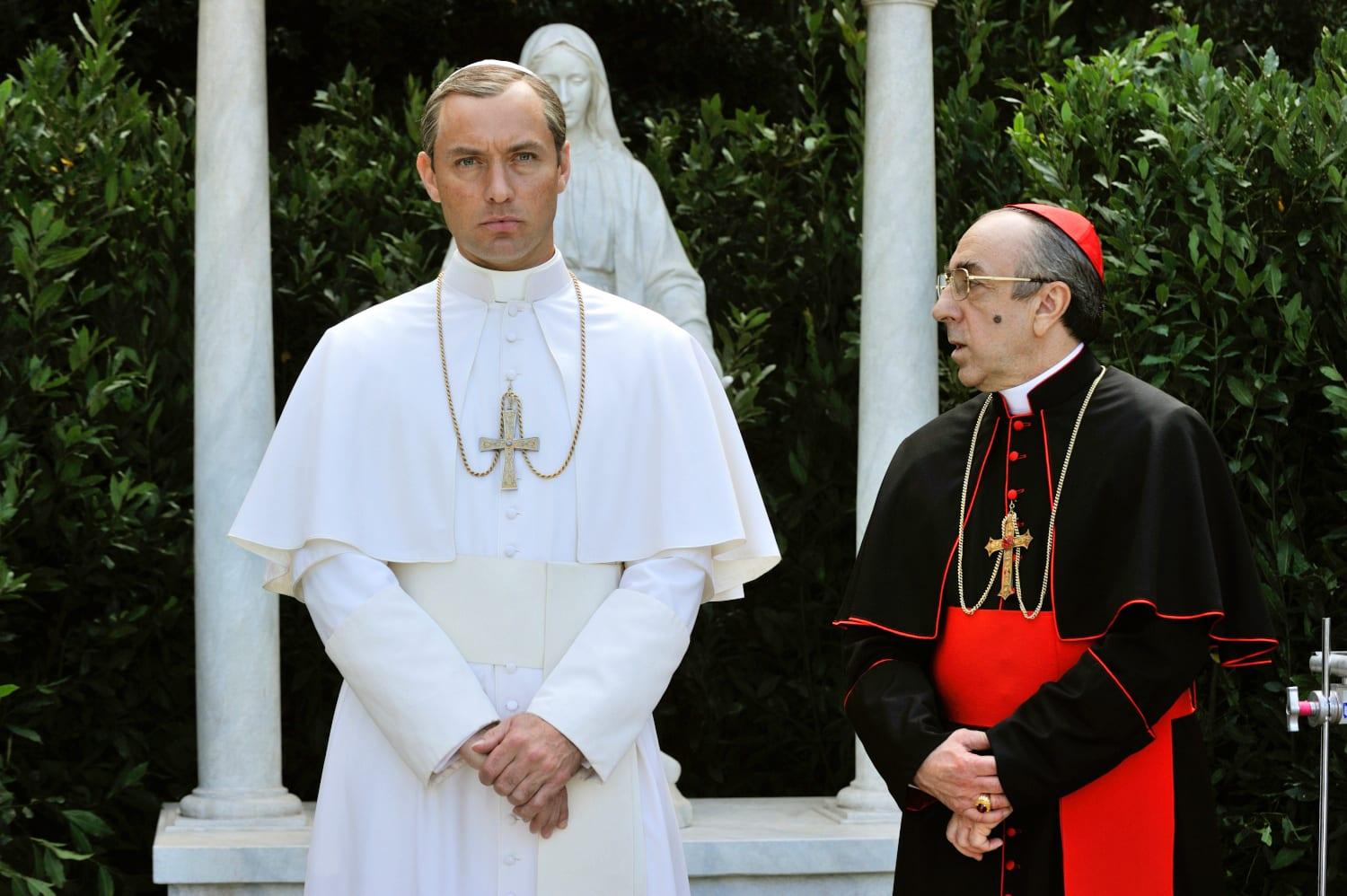NEW YORK — In HBO’s absorbing new drama “The Young Pope,” Jude Law plays the title character, American-born Lenny Belardo, who, through divine intervention or woeful human error (this will be hotly debated), is made Supreme Pontiff of the Catholic Church at the tender age of 47.
A disruptive, puzzling presence who describes himself as “intransigent, irritable and vindictive,” Pope Pius XIII from the start of his papacy is at cross-purposes with the Vatican’s appalled establishment. Swiftly, efforts by the College of Cardinals to bring him down catch fire.
The 10-episode series also stars Diane Keaton and James Cromwell among its international roster.
“The Young Pope” was created, directed and written by Italian filmmaker Paolo Sorrentino (whose 2013 film, “The Great Beauty,” won the Oscar for best foreign language film).
This week, he and Law, whose credits include “The Talented Mr. Ripley,” ”Cold Mountain” and Guy Ritchie’s “Sherlock Holmes” films, sat down in New York to talk about their bold collaboration, which premieres Sunday at 9 p.m. EST.
Here are highlights from that conversation (with assistance from Sorrentino’s translator):
SORRENTINO: The idea for ‘The Young Pope’ really stems from my high school years with Catholic priests as teachers. I was able to observe the solitude of those priests, and how much their lives were structured. And also how their universe marginalized the feminine aspect in the service of the masculine. I was able to draw on memories of those five years.
But although the film is incidentally about the Catholic Church, it’s also about a wider circle, which is the issue of faith — the question of believing or non-believing — which sooner or later affects us all.
LAW: At the core of our series is its humanity. We penetrate the layers of curiosity and intrigue surrounding the very human institution of the Catholic Church, and explore how people interact within it.
Preparing for my role, I initially felt it was necessary to look at papal history and the history of the Vatican. But answers really lay more in the character I was playing, which I think says an awful lot about where the heart of this show lies. I had to understand the backstory of the orphaned Lenny — who he was, what got him to the position of pope, and what motivated him as a human being, not as a religious strategist.
SORRENTINO: The most challenging part of making a film is the writing. I started writing this when I was finishing my previous film, ‘Youth’ (2015). But it’s hard for me to quantify how long it took, because I wrote whenever I had time on my hands — even in between going to the bathroom and getting dressed.
With a fully realized script in hand, Sorrentino and his actors could tackle “The Young Pope” as a single 10-hour movie more than as 10 separate episodes. But that didn’t make the project’s magnitude any less daunting.
LAW: I underestimated how hard-wired I was to playing a part for a two-hour period. Keeping the arc of your character’s journey as subtle and measured as possible, and also sustaining the necessary level of intensity, was quite a challenge over 10 hours.
SORRENTINO: When you make a movie, often you have the feeling that the result is due to luck or enthusiasm. But in this case, you needed a lot more than enthusiasm — you needed dedication.
To be able to keep that level of attention and concentration for a seven-month (production) period — that is an accomplishment in and of itself. I presume I succeeded in it, which I think is connected to this fact: I finally learned the job. For the first time, I had the awareness that I’ve learned to be a filmmaker!
Asked how he chose Law as his pope, Sorrentino replied there were many reasons. Then he shared one.
SORRENTINO: I’m always very interested in an actor’s way of walking. This is one of my parameters for whether I like an actor or not. In ‘Road to Perdition’ (a 2002 crime drama also starring Tom Hanks and Paul Newman), Jude did something that I thought was genius: He came off as BORED while he was walking to kill somebody. He wasn’t excited, he didn’t have guilt about what he was going to do. I really liked that. It was a lot of fun to watch. After that, I thought it would be a great idea to work with Jude.
LAW: It was a very rewarding and happy time. I felt safe with Paolo. Maybe it was partly me maturing as an actor, but it seemed wonderful to be able to come to (the) set and just think about what I had to do, rather than: ‘Are we getting this?’ In the hands of Paolo, I knew that he wasn’t just going to GET it, he was going to elevate anything we did.
And, odds are, they aren’t finished with their happy partnership.
LAW: When we went into this, the idea was: ‘This is it, in its entirety.’ But then the ideas grew.
SORRENTINO: I would love to do a second season. I am writing it now!










